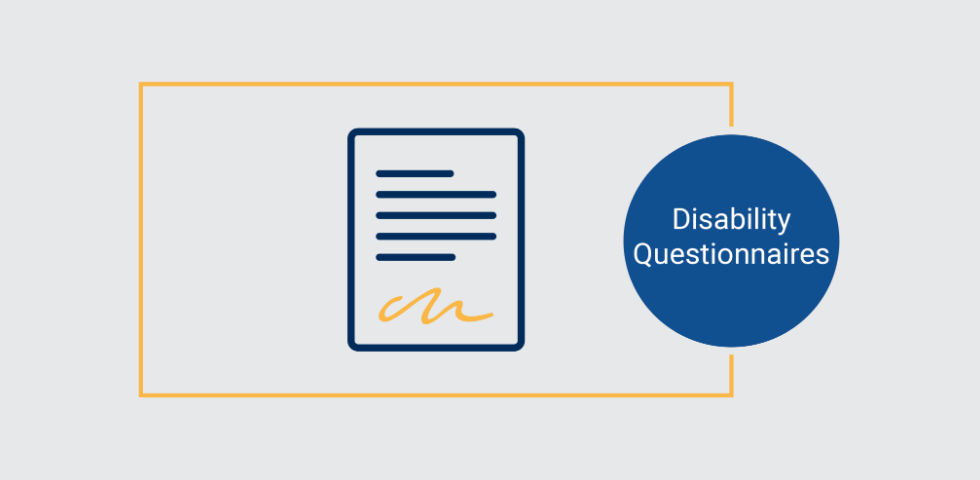The Social Security Disability Insurance (SSDI) application process can be lengthy. Once a claim has been filed with the Social Security Administration (SSA) and all necessary paperwork returned, the claim is moved to a disability office where an examiner will be assigned to collect the medical evidence needed to make a decision. Along with medical records, test results, and doctors’ notes, examiners may request applicants complete questionnaires to help better understand how their conditions are impacting daily life. These questionnaires are a vital part of the SSDI application and must be handled both accurately and timely to avoid a denial.
The two most common questionnaires that Social Security will send out to disability applicants are the Function Report and the Work History Report. The Function Report asks specific questions about the impact conditions have on limiting day-to-day activity, while the Work History Report asks about the physical and mental demands of any jobs held over the last fifteen years. In some ways, these forms look similar and can feel repetitive. It is important that all forms received from Social Security are completed as accurately and with as much detail as possible. Even though these forms can feel overwhelming, applicants will never meet with their disability examiner face to face, so these questionnaires give them the opportunity to paint a picture of the ways in which their conditions impact daily life. A simple “yes” or “no” does not provide enough information to answer those questions accurately.
Over the next several posts, we will be highlighting the most common questionnaires received from Social Security during the application process, focusing on why each is vital to a SSDI claim and how to complete them most effectively.
Nothing in this post is intended as advice or a suggestion to elect or not elect to claim benefits of any kind, including Social Security benefits, nor is it intended as financial advice in any way. The decision to claim benefits is a personal one that is contingent upon each individual’s unique circumstances.




